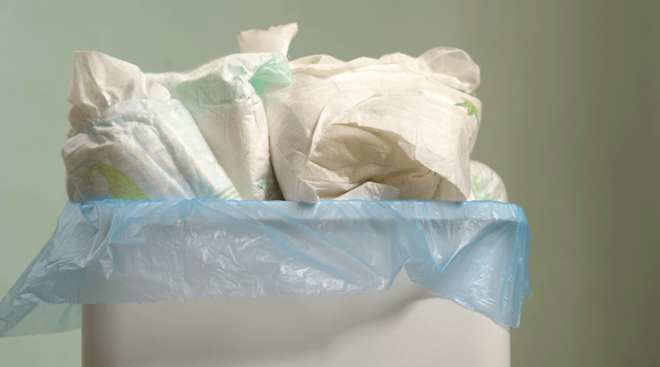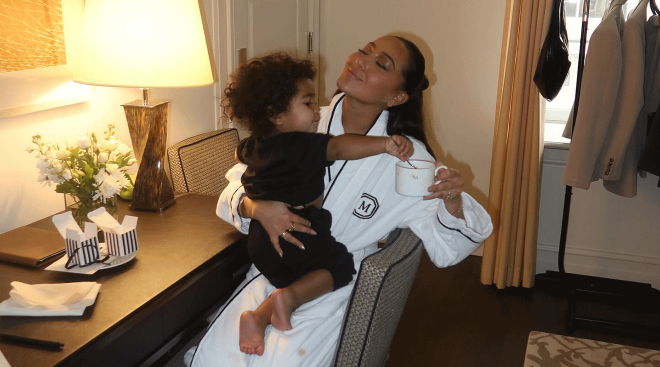How to Avoid Raising Spoiled Kids
You’re in the grocery store when you spot a mother and child walking down the aisle. The boy asks if they can buy a bag of Cheetos. The mom says no; the child throws a tantrum; the mom immediately caves and tosses the bag into the cart. Or maybe you’re at a friend’s house and watch as the dad begs his daughter to help clean up her toys, then winds up doing it for her as she watches cartoons. Sound familiar?
“We are absolutely trending toward raising a generation of self-centered, spoiled, entitled kids,” says Fran Walfish, PsyD, a Beverly Hills, California-based family psychotherapist and author of The Self-Aware Parent. “Parents want to be liked, in addition to loved, by their children. So instead of staying consistent, clear and firm on structure, rules and boundaries, parents are cutting their kids too much slack, giving dozens of warnings and chances and inadvertently overly empowering the next generation to believe they have an equal or stronger vote than the authority of their parents.”
Spoiled children aren’t just a headache for parents—as they grow up, their disrespectful attitude and inability to follow rules can wreak havoc at school, prevent them from making meaningful friendships and make it difficult for them to be truly content. Read on to learn what being spoiled really means, what causes the behavior and what you can do to avoid raising a spoiled child of your own.
According to the American Academy of Pediatrics, the “spoiled child syndrome” is characterized by excessive self-centered, immature behavior that stems from parents’ failure to enforce consistent, age-appropriate rules and expectations. If your child is acting out, though, consider whether it could be related to normal age-related phases, or maybe even reactions to family stresses—if so, that doesn’t count as being spoiled.
So how do you know if you actually have a spoiled child on your hands? Certain behavioral markers can tip you off—for instance, kids who won’t take no for an answer. “They demand, push their parents and have full-blown tantrums until one parent collapses in exhaustion, frustration or pity and submits to the child’s demands,” Walfish says, adding that eye rolling, constant complaining and general opposition are also characteristic of spoiled children.
John Mayer, PhD, a clinical psychologist at Doctor on Demand who specializes in treating children and teens who are acting out, offers the following checklist of additional qualities that can be spotted in spoiled children:
- Narcissistic
- Disrespectful to adults and other children
- Disobedient at home and at school
- Have temper tantrums
- De-motivated and aren’t self-starters
- Crave stimulation and have a hard time being alone
- Manipulative
- Struggle to make friends
The reason for this behavior? “Spoiled children are often sad and scared inside, because they are more in control of their lives than their parents, and that’s very scary,” Mayer explains.
Spoiled kids aren’t inherently bad—their behavior is simply a result of their upbringing. “For the average parent in North America, the assumption is that the child is emotionally fragile, and their needs and rights trump their parents,” says parenting expert Alyson Schafer, a Toronto-based therapist and author of Honey, I Wrecked the Kids. “We’re seeing parents who are being quite spoiling or pampering in their approach—the child cries and gets whatever they want.”
This permissive approach to raising kids, where parents set few limits for their children and quickly give in to their wants and whims, is a primary driver of spoiled behavior. “But there are many, many types of parenting that lead to spoiled children,” Mayer says. In his professional practice, the following are the most common styles of child-rearing that wind up spoiling a child:
• Making your child your “passion project.” “These parents devote their lives to their child in such a way that they have no lives of their own,” Mayer says. By never spending any time away from their child, and dropping everything to see to her every need and want, they make her the all-consuming center of their universe—a position the child may end up expecting to always occupy in life.
• Overcompensating for parental guilt. For one reason or another, mom (or dad) guilt is pretty pervasive in today’s society. But that can become a problem when you let feelings of remorse dictate how you interact with your child. Some working parents, for example, “feel guilty about not spending time with their children, so they spoil them materialistically,” Mayer says. These are the kids who seem to have every hot new toy out there.
• Living vicariously through your child. “These are parents who have their child’s future all planned out for him, like a script—one that isn’t of the child’s choosing,” Mayer explains. And they’ll provide their child with anything and everything to make that dream a reality. “Parents may also spoil their children with material things because they didn’t have those items when they were growing up,” he adds.
• Immediately giving in to your child’s desires. Kids often operate under a “I have to have it now!” mentality, Mayers says—but that doesn’t mean you have to indulge it. The ultimate example of this is Veruca Salt from Willy Wonka and the Chocolate Factory and her weak-willed father (and we all know how she ended up). “Delay of gratification is the spoiled child’s kryptonite,” Mayers says.
Let’s be honest: Denying your child something they really want can be tough—no one wants to face the tears or be seen as the bad guy. “Every parent wants to be both loved and liked by their child,” Walfish says. “But parents should understand that their child will sometimes be mad at them—especially when they’re asking her to do something she’d rather not do. This behavior is a necessary part of claiming herself as a separate being with individual wants and wishes.” Don’t let your child’s disappointment weaken your family’s rules or resolve.
So how can you avoid spoiling your child? Try out the following expert parenting tips:
• Listen to your child—but stick to your guns. “Talking through a situation allows your child to feel heard,” Walfish says—but after acknowledging his frustrations, it’s important to reinforce whatever limits you’ve set and ensure that your child accepts their responsibility or respects the rules. For instance, your child can complain about how it’s not fair that they don’t have a smartphone and their friends do. You can listen and say, “I understand you’re upset that you can’t have a smartphone, but our family rule is that you get one in sixth grade.”
• Don’t be afraid of letting your kids fail. It can be hard seeing your kids experience disappointments, but understanding how to handle failure and persevere through difficulty is an important lesson for kids to learn while they’re young. “Let your child make mistakes, or as I call it, ‘bump into the furniture,’” Mayer says. Whether you let your children lose once in a while at Chutes and Ladders or encourage them to try something new that they may not succeed in at first, it’ll pay off down the road.
• Don’t over-praise your child. People who complain about the current “everyone gets a trophy” mentality may have a valid point—a 2015 study found that kids whose parents overvalue them—for instance, praising them for talents they don’t posses—are more likely to develop narcissistic behaviors. Yes, it’s important to encourage your kids and shower them with affection, but research shows that children can internalize their parents’ inflated views of them, leading to spoiled behavior. Instead of applauding your child for something they didn’t actually excel at, try praising your child’s effort—for example, “I’m proud of you for working so hard on that school project.”
• Make rules you intend to keep. Letting your child repeatedly ignore the limits you set just encourages them to continue behaving badly. Even if they’re basic boundaries, set a few family rules and stand your ground. “Have firm, consistent rules and structure for your child,” Mayer says. “Make sure you gain their respect and that you give respect, and love will follow.”
Navigate forward to interact with the calendar and select a date. Press the question mark key to get the keyboard shortcuts for changing dates.




















































